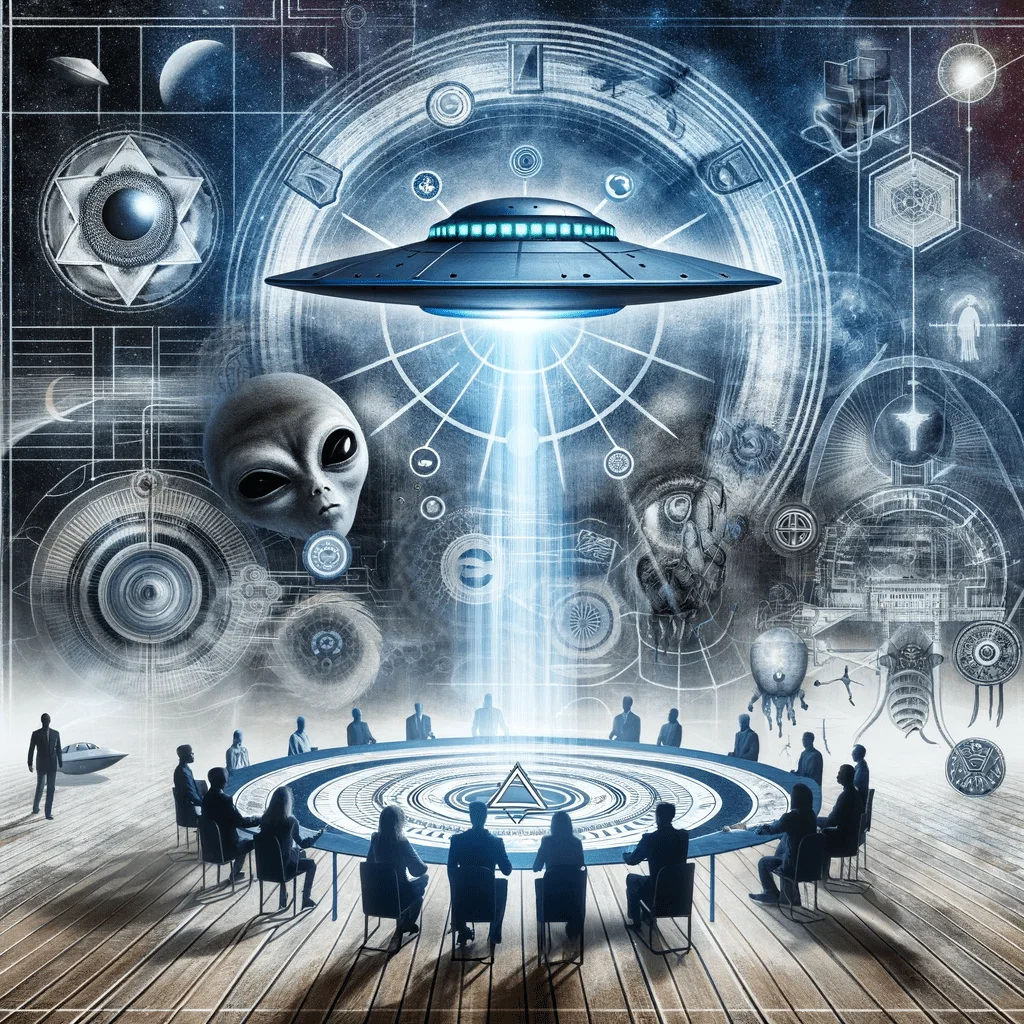American Cosmic: UFOs, Religion, Technology

American Cosmic: UFOs, Religion, Technology by Diana Pasulka is a compelling exploration of how UFO phenomena intersect with religious experiences and modern technology. In this unique work, Pasulka looks into the beliefs and experiences of individuals who claim to have encountered extraterrestrial beings, examining how these encounters have shaped their views on reality, religion, and technology. The book blends rigorous academic research with intriguing cultural analysis, offering new insights into the UFO phenomenon.
Pasulka argues that UFOs represent a modern form of religious experience, filling the spiritual gap left by the decline of traditional religious beliefs in Western societies. She suggests that, much like religious experiences, UFO encounters often involve visions, miraculous events, and interactions with otherworldly beings, all of which challenge conventional notions of reality. In this sense, UFOs serve a similar purpose to that of traditional religious symbols and experiences, offering a new type of mysticism that resonates with the technologically advanced yet spiritually uncertain modern world.
A key theme in American Cosmic is the role of media in shaping and perpetuating UFO narratives. Pasulka discusses how media representations have both reflected and influenced public perceptions of UFO phenomena. She explores the idea that media, from movies to news outlets, has helped create a “UFO mythology” that parallels religious myths, complete with its own stories of miracles, saviors, and otherworldly interventions. This media-driven narrative has shaped public understanding of UFOs, influencing how individuals interpret their experiences and how society as a whole views the phenomenon.
Pasulka also emphasizes the social dimensions of UFO belief, highlighting how communities of UFO enthusiasts form around shared experiences and beliefs. She notes that these communities provide a sense of belonging and purpose, much like religious communities. The shared narratives and communal activities of UFO believers create a social structure that helps explain the persistence and appeal of UFO phenomena, even in the face of skepticism from the broader public.
One of the most fascinating aspects of the book is its exploration of how UFO encounters have inspired advances in science and technology. Pasulka introduces readers to scientists and inventors who claim that their experiences with UFOs or extraterrestrial beings have motivated them to pursue new technologies. These individuals, such as the pseudonymous “Tyler” in the book, believe they have witnessed advanced technology from otherworldly sources and are working to replicate or understand these innovations. Pasulka provides insight into how such experiences can drive scientific discovery, blurring the line between inspiration, spirituality, and technological advancement.
The concept of the “Invisible College” is another significant focus of Pasulka’s work. This term refers to a secretive network of scientists, academics, and professionals who privately study and discuss UFO phenomena. These individuals often remain anonymous or use pseudonyms (like “Tyler” and “James”) to protect their reputations and careers, as engaging with UFO research is still seen as taboo in many scientific circles. The Invisible College operates in the shadows, advancing the study of UFOs and exploring their potential implications for science, society, and the future of humanity.
Pasulka also examines the impact of UFO beliefs on popular culture, particularly how films, television shows, and other media have shaped the public’s understanding of extraterrestrial life. She discusses how popular culture both reflects and reinforces the myths and narratives surrounding UFOs, often presenting them in a way that mirrors religious stories of salvation, apocalypse, and divine intervention. This cultural feedback loop has helped cement UFOs as a lasting element of both spiritual and scientific discourse in the modern age.
Finally, American Cosmic looks into the deep connection between technology and spirituality within UFO phenomena. Pasulka explores how the advanced technologies attributed to extraterrestrial beings are often perceived as bridging the material and spiritual worlds. In this sense, the technology associated with UFOs not only represents scientific advancement but also offers a form of spiritual transcendence, blending the physical and metaphysical in ways that challenge traditional boundaries.
American Cosmic: UFOs, Religion, Technology offers a fresh and thought-provoking perspective on UFO phenomena, focusing on the cultural, religious, and technological factors that contribute to their enduring appeal. By highlighting the ways in which UFOs function as a modern form of religious experience, Pasulka provides readers with a nuanced understanding of the role that belief, media, and science play in shaping our understanding of the unknown.


